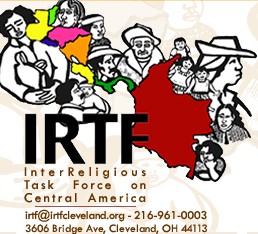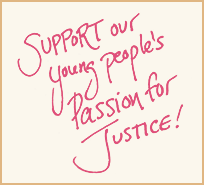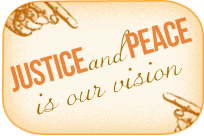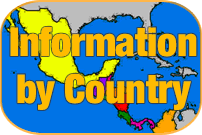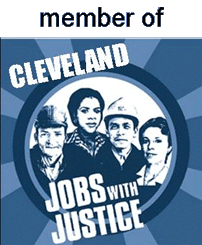What is Fair Trade?
- What is Fair Trade?
- Why Buy Fair Trade?
- What is a Fair Wage?
- What Kinds of Goods are Sold Fairly Traded?
- How does one know that a particular item is Fair Trade?
- Are Fair Trade Products More Expensive?
- What is the different between "Free" trade and "Fair" trade?
- Sweat-free Buying Guide (PDF)
Fair trade means an equitable partnership between wholesalers and retailers in the Global North (North America, Europe) and farmers and artisans (producers) in the Global South (Africa, Asia, Latin America). It guarantees a better price for products than traditional market value for producers so they can earn a decent, living wage and break the cycle of exploitation and debt.
Fair trade advocates and businesses generally support the following principles and practices in trading relationships:
- Opportunities for Economically Disadvantaged Producers
Fair trade creates sustainable development and alleviates poverty by generating opportunities for producers for whom conventional trading systems do not work. - Transparency and Accountability
Fair Traders insist on transparent management and accountable commercial relations. Without independent verification, claims of fairness and respect for trading partners and customers have little value and can be easily manipulated. - Capacity Building
Fair Traders help develop producer independence by committing to long-term relationships with partners, and helping them develop management skills, access to markets and financial expertise. - Payment of a Fair Price
A “fair price in the regional or local context” is one that has been developed through dialogue and participation. It covers not only the costs of production but enables production which is socially just and environmentally sound. It provides fair pay to the producers and takes into account the principle of equal pay for equal work by women and men. Fair traders ensure prompt payment to their partners and, whenever possible, help producers with access to pre-harvest or pre-production financing. - Gender Equity
Fair trade means that a woman’s work is properly valued and rewarded. Fair traders emphasize the value of the work women perform, as producers and as organization leaders. Women are always paid equitably for their contribution to the production process and are empowered as leaders in their organizations. - Healthy Working Conditions
Fair trade means a safe and healthy working environment for producers. The participation of children (if any) does not adversely affect their well-being, security, educational requirements, and need for play and conforms to the UN Convention on the Rights of the Child, as well as to the laws and norms in the local context. - Environmental Sustainability
Fair trade actively encourages sustainable environmental practices and the application of responsible methods of production. - Promotion of Fair Trade Principles
Fair Trade organizations and businesses commit to educating the public about purchasing fairly traded products, highlight the need for changes in conventional trade practices, and demonstrate how fair trade advances social justice and environmental sustainability. By providing information about producers’ communities, fair trade organizations and businesses enhance understanding across cultures.
*Source: 2005 Fair Trade Federation Trends Report, www.FairTradeFederation.org
 Why Buy Fair Trade?
Why Buy Fair Trade?
Buying fair trade means supporting decent wages for producers in the Global South, as well as protecting the environment; for instance, most fairly traded food is grown organically. Fair trade companies work with small businesses and democratically-run cooperatives that invest their profits into community development projects like health clinics, childcare, nutrition, housing, and education.
What is a Fair Wage?
Workers are paid a living wage, determined by local living standards, which enables them to cover their basic needs. Fair trade also means guaranteeing work conditions that are safe, healthy, and free from intimidation and forced overtime--abuses typical of sweatshops.
What Kinds of Goods are Sold Fairly Traded?
Currently, the most widely known fair trade products are coffee and chocolate (cocoa beans). Other agricultural products have become available such as fruit (especially bananas), tea, rice, sugar, nuts, and flowers. Agricultural products are fair trade certified through Fair-trade Labeling Organizations International (FLOI) internationally, and in the U.S. by TransFair USA, the only U.S. member of the FLOI. Look for these products in your local grocery store, café, or farmers market. See our Sweat-free Buying Guide for more details and local businesses that carry fair trade products.
Each year more and more goods in addition to agricultural products are becoming available fairly traded. Fair trade crafts, such as jewelry, textiles, clothing, and home accessories are sold in shops such as Ten Thousand Villages and Revive, or by local non-profit organization such as IRTF and Heartbeats. See our Sweat-free Buying Guide for more details and local businesses that carry fair trade products.
How does one know that a particular item is Fair Trade?
The follow three organizations specifically deal with the fair trade products: the Fair Trade Federation, Transfair USA, and Equal Exchange. When items are purchased through these organizations, one can guarantee the item is fairly traded! You can also go to our Sweat-free Buying Guide for more details and local businesses that carry fair trade products.

The Fair Trade Federation
The Fair Trade Federation (FTF) is an association of businesses and organizations who are fully committed to fair trade. The Fair Trade Federation encourages purchasing through fair trade stores, catalogs, and websites. FTF strengthens the capacity of its members, encourages the exchange of best practices, and raises awareness about the importance of choosing fairly traded products and supporting businesses committed to fair trade principles. Fair Trade Federation members go through an application process to determine that their goods have been fairly traded. Although the idea of labeling fairly traded crafts has been explored, this is not yet a reality. They also provide a list of worldwide producers and retailers who are members of the FTF including various Cleveland locations. www.fairtradefederation.org

TransFair USA
TransFair USA is one of twenty members of Fair-trade Labeling Organizations International (FLOI), and the only third-party certifier of Fair Trade products in the United States. They audit transactions between U.S. companies offering Fair Trade Certified™ products and the international suppliers from whom they source, in order to guarantee that the farmers and farm workers behind Fair Trade Certified goods were paid a fair, above-market price. In addition, annual inspections conducted by FLOI ensure that strict socioeconomic development criteria are being met using increased Fair Trade revenues.
In addition to coffee and chocolate, many other products are also fair trade certified. For more information on these products and the certification process, please visit TransFair USA website www.transfairusa.org.

Equal Exchange
Equal Exchange is the oldest and first fair trade cooperative in the United States. Begun in 1986, Equal Exchange is known for their fairly produced coffee from around the world. They continue today as a gold-standard in the U.S. for fair trade organizations and have expanded their product lines to include tea, chocolate, and much more. They have made it their mission to educate consumers and other retailers about fair trade and have numerous resources available online. For more information visit www.equalexchange.coop
Equal Exchange Interfaith Program
Through a special program with Equal Exchange, congregations and other faith organizations are able to purchase bulk coffee, tea, and other items for congregation use, as well as purchasing retail products at wholesale prices to sell as a fundraiser. Most mainline Christian denominations have a special partnership with Equal Exchange that includes the denominations logo and information about special fair trade products that denomination is working on. For more information about the Equal Exchange Interfaith Program go to www.equalexchange.com/interfaith-program
Below is a list of the various denominations that have ongoing partnerships Equal Exchange. Each denomination has its own website with resources and advertising materials.
- American Friends Service Committee: http://www.equalexchange.com/afsc
- Church of the Brethren: http://www.equalexchange.com/brethren
- Disciples of Christ: http://www.equalexchange.com/doc/
- Lutheran World Relief: http://www.equalexchange.com/lwr
- Mennonite Central Committee: http://www.equalexchange.com/mcc
- Presbyterian Church: http://www.equalexchange.com/pcusa
- United Church of Christ: http://www.equalexchange.com/ucc
- United Methodist Committee on Relief: http://www.equalexchange.com/umcor
- Unitarian Universalist Service Committee: http://www.equalexchange.com/uusc
- Catholic Relief Services: http://www.equalexchange.com/cr
Are Fair Trade Products More Expensive?
Fairly traded crafts may or may not cost more than non-fairly traded goods. While producers are paid more for their products, the intermediaries (“middlemen”) that traditional markets use are generally taken out of the process or reduced in number. Therefore, fair trade products tend to be comparable in price to non-fair trade products.
What is the different between “Free” trade and “Fair” trade?
Both terms describe methods and rules of commerce between people across the globe. Both adjectives have a positive ring to them. “Free” sounds like “freedom” and “fair” conjures up the notion of “just” or “equitable”. Can’t a person be in favor of both “free trade” and “fair trade”?
“FREE” TRADE CONCEPTS
- Based on free market economics, in which government regulations on labor practices, environmental impacts, or “protectionist” tariffs are not permitted to interfere with the action of supply and demand in determining the prices for goods, the wages for labor, or the development of infrastructures to produce, distribute, and market goods around the world.
- Believes that private corporations can more efficiently and effectively manage the relationships between participants in the economy than governments can. Hence, the move towards unregulated privatization of services traditionally provided by some level of government (water, sewer, mail, utilities, roads, and more).
- Posits that freedom of individuals to compete with a new product or new idea will insure that the best developments will surface and that inappropriate power will be automatically rectified.
- Assumes that a level playing field exists for this competition so that the marketplace will create its own “fairness”.
- Exemplified by: NAFTA, WTO, FTAA
- Sometimes called economic neo-liberalism. The driving philosophy for globalization as commonly understood.
“FAIR” TRADE CONCEPTS
- Based on the human rights principle that all persons have a right to dignified employment to secure the basic needs of one’s family.
- Believes that market factors and competition must be balanced with moral principles of fairness in light of actual results of commercial practices, especially on the poor.
- Posits that entrepreneurial small businesses and collectives can compete in efficiency and quality in providing goods and services, while meeting standards of fair treatment of workers and sustainable environmental practices.
- Relies on governments, non-governmental organizations, and the business community to work together with consumers to change unfair market conditions. This very un-level playing field was historically created by military force and political graft which gave insurmountable advantage to some players in the economy.
- Rests on voluntary agreements between producers, distributors, and consumers to establish prices that enable moral principles of fairness and sustainability to operate.
For more information on buying fair trade check out our Sweat-free Buying Guide!
- Fair Trade logo courtesy of TransFair USA
